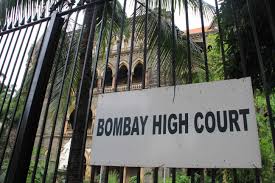The Bombay High Court decided to ask HPC to meet regularly and identify categories of prisoners to decongest jails, while hearing a suo moto PIL.

The Bombay High court yesterday comprising division Bench of CJ Dipankar Dutta and Justice G.S. Kulkarni heared a suo motu Public Interest Litigation over surge in COVID 19 cases in jails across Maharashtra. The PIL was taken up based on the coverage of free press journal and another English daily.
In the order dated 20th April, 2021 the same bench observed that,
“The second wave of the pandemic has struck the civil society hard. The virus, which is the cause of the pandemic, neither differentiates between men and women, young and old, nor in respect of private homes or public places. Quite naturally, COVID-19, has also made its presence felt in the overcrowded correctional homes of the State. Taking judicial notice of reports published in the print media of there being an alarming rise in active cases affecting almost 200 correctional home inmates and 86 staff members, a coordinate Bench of this Court proceeded to initiate this public interest litigation, suo motu, and by its order dated 16th April 2021 called for information on the following points:
- Status of COVID-19 cases in respect of inmates as well as staff members of correctional homes in the State;
- The measures being taken and proposed to be taken to control the spread of the virus in the correctional homes; and
- Measures to de-congest the correctional homes”
The court in its 20th April, 2021 order also gave the following directions,
“Taking into consideration the possibility of outside transmission, we direct that the physical presence of all the undertrial prisoners before the Courts must be stopped forthwith and recourse to video conferencing must be taken for all purposes.”
In the 22nd April, 2021 order the bench observed that,
“In the decision of the Supreme Court reported in (2012) 13 SCC 192 (State of Maharashtra & Ors. vs. Saeed Sohail Sheikh & Ors.) and has submitted that if any under-trial prisoner is required to be shifted to a correctional home from the one where he is lodged, the law laid down in the said decision would be followed in letter and spirit and the State is abandoning the prayer as made in the said paragraph of the reply affidavit.”
The submission then was accepted by the bench and 27th April was fixed for the next hearing which was further shifted to 29th April.
“Having regard to the critical situation prevailing now and in order to ensure that under-trial prisoners lodged in various correctional homes of the State may be required to be shifted to less-crowded correctional homes to achieve equal distribution, and thereby decongest the over-crowded correctional homes, the State may proceed to decide on shifting some of such prisoners based on cogent reasons and we have no doubt in our mind that if an application is made before the relevant Magistrate in this behalf with relevant particulars, such application shall be considered on its own merits as early as possible and preferably within 48 hours of receipt of such application, in accordance with law.”
The Court on Thursday said that it would be ordering the High Powers Committee (HPC) appointed last year to decongest jails across Maharashtra, to meet regularly and identify further categories of prisoners, who could be released on temporary bail or emergency parole. The advocate general Ashutosh Kumbhakoni told the bench that presently there are around 244 inmates, who are infected with the virus. The bench was further informed that the state is taking all measures to control Covid in the prisons.
However, senior counsel Mihir Desai apprised the bench of various issues such as no proper testing in the prisons, inmates being made to use one single mask from last one year etc.
The CJ Datta said, "We will pass an order asking the HPC to meet regularly since it had last met in June 2020. It can again meet and identify categories of prisoners, who could be released in view of Covid surge in prisons."
The HC has also ordered the Maharashtra government to spell out if the condition of mandatory Aadhar for getting vaccinated could be withdrawn at least for prisoners.
“If a person has Aadhar but commits a crime. Then he or she is asked to furnish his Aadhaar by the court or any other authority. But is there mechanism to find out whether that person has Aadhaar or not?” – asked the CJ
The AG responded, "There is no issue of Aadhar from the state's end. But the Union government has put up a stand that Aadhaar is necessary to identify, who got the jab. So, the Union will have to answer this query."
The chief justice intervened and said, "If Aadhaar is becoming a hurdle for vaccination, why not have a camp to give Aadhar first?" also Justice Kulkarni, added, "You (authorities) must understand that vaccination is the cheapest treatment for any citizen. Consider this condition again."
At the time of the hearing, the bench noted that cases within prisons have scaled up because staffers go in and out of the jails. "You (state) can consider keeping batches of staffers, who could be made to live in jail premises for a specific period. And by the time their time period (to stay in jail premises) would come to an end, you can have another batch ready and test them before they start their job," Justice Kulkarni suggested.
The bench further ordered the state to ensure that prisoners get masks regularly and even the hand-sanitizers. Meanwhile, the bench was also informed that the state has conducted 64,000 tests on prisoners till date.
Case title - High Court on its own Motion v. The State of Maharashtra & Ors
(The story was first published on Free Press journal)
